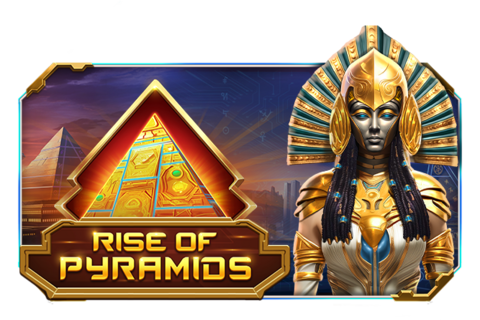While the grandeur of pharaohs and monumental constructions often dominate discussions about Ancient Egypt, the daily lives of ordinary Egyptians tell equally compelling stories. Understanding these experiences broadens our perspective of this ancient civilization in https://8888b.store/
Agriculture: The Backbone of Society Rise of Pyramids Slots
Agriculture formed the foundation of Ancient Egyptian society, driving economic prosperity and stability. The annual flooding of the Nile provided fertile soil for crops, enabling farmers to cultivate grains, vegetables, and fruits.
The agricultural calendar was tightly linked to the cycles of the Nile, dictating planting and harvesting times. Farmers worked collaboratively, utilizing simple yet effective tools to till the land and ensure bountiful yields. The reliance on the Nile also fostered a sense of gratitude towards the river, resulting in various rituals to honor its spirit.
Beyond sustenance, agriculture significantly influenced social structures. Wealthy landowners controlled vast tracts of fertile land, while farmers paid taxes in the form of grain. This created a hierarchy where wealth and status were closely tied to agricultural productivity, underpinning the socio-economic framework of ancient Egypt.
Exploring the agricultural practices of Ancient Egypt reveals a keen understanding of sustainable living, reflected in their respect for nature and community. Today, this relationship reminds us of the importance of environmental stewardship and cooperation in achieving a balanced society.
Artisans and Craftsmanship: Masters of Creation
Artisans played a vital role in Ancient Egyptian society, producing everything from pottery to intricately woven textiles. Their craftsmanship was highly valued, and skilled laborers were often respected members of their communities.
Artisans worked in specialized workshops, honing their skills through apprenticeships. The process was often collaborative, with artisans sharing techniques and resources. This emphasis on teamwork fostered creativity and innovation, resulting in high-quality products that enriched both the domestic sphere and trade.
Interestingly, the artistry of Ancient Egypt wasn’t purely functional; it often carried symbolic meanings. For instance, pottery designs featured motifs related to fertility or protection, intertwining artistry with spiritual beliefs. Such connections highlight the intimate relationship between art and culture in ancient societies.
In modern contexts, the appreciation for craftsmanship endures. The resurgence of interest in handmade goods and artisanal practices echoes the value placed on skilled labor in Ancient Egypt. Games like Rise of Pyramids Slots often incorporate depictions of artisans, reminding players of the creativity that thrived alongside monumental achievements.
Social Structure: Hierarchies of Power and Status
Ancient Egyptian society was stratified, characterized by distinct social classes ranging from pharaohs to peasants. The ruling class comprised the pharaoh, nobles, and priests, wielding considerable influence over political, religious, and economic matters.
Beneath them were skilled craftsmen, merchants, and scribes, whose literacy and expertise afforded them a measure of respect and autonomy. At the base of the social pyramid were farmers and laborers, whose hard work sustained the economy yet afforded them limited privileges.
This hierarchical structure served practical purposes, facilitating governance and resource management. However, it also underscores the complexities of power dynamics and human relationships within society. The responsibilities of leadership were immense, as pharaohs were viewed as divine figures responsible for maintaining Ma’at and ensuring prosperity.
Examining this social structure prompts reflections on contemporary hierarchies and inequalities. While the contexts may differ, the pursuit of equity and justice remains pertinent today, urging us to draw lessons from ancient civilizations in fostering inclusive societies.
Conclusion
The adventures in Ancient Egypt are as captivating today as they were thousands of years ago. The monumental achievements in architecture, the reverent belief systems, the daily lives of its people—all contribute to a rich historical narrative that continues to inspire modern interpretations, including games like Rise of Pyramids Slots.
As we unravel the threads of ancient life, we discover a civilization that profoundly understood the interplay between the material and spiritual realms. The legacies left behind by the ancient Egyptians remind us of the universality of human experience—our quest for meaning, connection, and transcendence. Through exploration and engagement with this history, we keep the spirit of Ancient Egypt alive, allowing it to resonate through time and inspire future generations in their own adventures.


